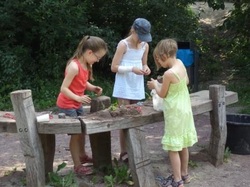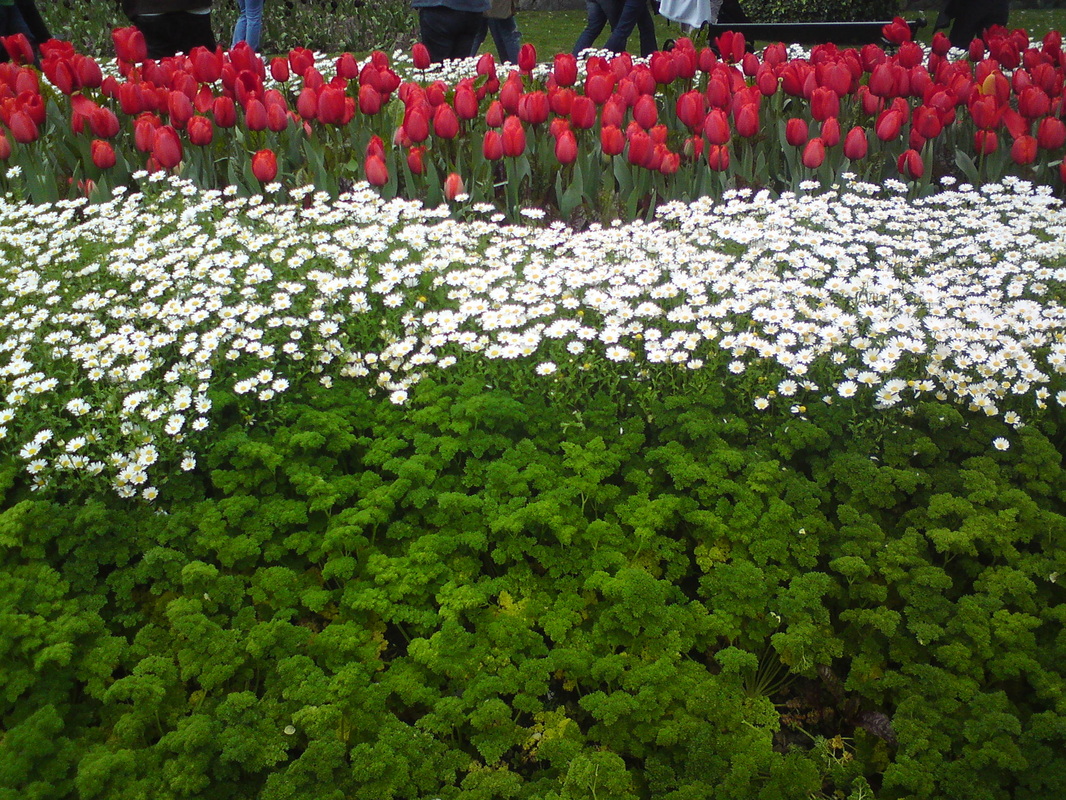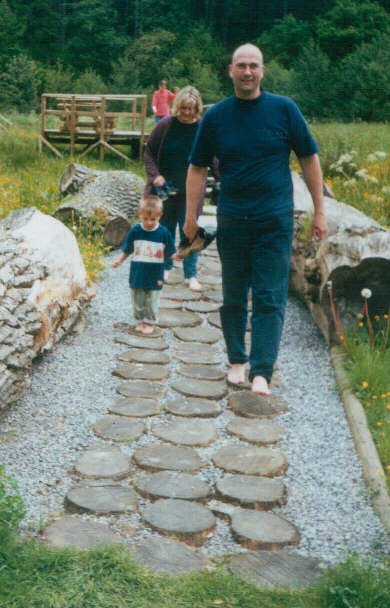
Author and clinical psychologist Kay Redfield Jamison writes, “Children need the freedom and time to play. Play is not a luxury. Play is a necessity.” It is through unstructured, open-ended creative play that children learn the ways of the world. While playing outside, children explore with all their senses, they witness new life, they create imaginary worlds and they negotiate with each other to create a playful environment.
- Outdoor play is a multi-sensory activity. While outdoors, children will see, hear, smell and touch things unavailable to them when they play inside. They use their brains in unique ways as they come to understand these new stimuli.
- Playing outside brings together informal play and formal learning. Children can incorporate concepts they have learned at school in a hands-on way while outdoors. For example, seeing and touching the roots of a tree will bring to life the lesson their teacher taught about how plants get their nutrients.
- Playing outdoors stimulates creativity. Robin Moore, an expert in the design of play and learning environments, says, “Natural spaces and materials stimulate children’s limitless imagination and serve as the medium of inventiveness and creativity.” Rocks, stones and dirt present limitless opportunities for play that can be expressed differently every time a child steps outside.
- Playing outdoors is open-ended. There is no instruction manual for outdoor play. Children make the rules and in doing so use their imagination, creativity, intelligence and negotiation skills in a unique way.
- Playing in nature reduces anxiety. Time spent outside physiologically reduces anxiety. Children bring an open mind and a more relaxed outlook back inside when they are in more traditional learning environments.
- Outdoor play increases attention span. Time spent in unstructured play outdoors is a natural attention builder. Often children who have difficulty with pen and paper tasks or sitting still for long periods of times are significantly more successful after time spent outside.
- Outdoor play is imaginative. Because there are no labels, no pre-conceived ideas and no rules, children must create the world around them. In this type of play, children use their imagination in ways they don’t when playing inside.
- Being in nature develops respect for other living things. Children develop empathy, the ability to consider other people’s feeling, by interacting with creatures in nature. Watching a tiny bug, a blue bird or a squirrel scurrying up a tree gives children the ability to learn and grow from others.
- Outdoor play promotes problem solving. As children navigate a world in which they make the rules, they must learn to understand what works and what doesn’t, what lines of thinking bring success and failure, how to know when to keep trying and when to stop.
- Playing outside promotes leadership skills. In an environment where children create the fun, natural leaders will arise. One child may excel at explaining how to play the game, while another may enjoy setting up the physical challenge of an outdoor obstacle course. All types of leadership skills are needed and encouraged.
- Outdoor play widens vocabulary. While playing outdoors, children may see an acorn, a chipmunk and cumulous clouds. As they encounter new things, their vocabulary will expand in ways it never could indoors.
- Playing outside improves listening skills. As children negotiate the rules of an invented game, they must listen closely to one another, ask questions for clarification and attend to the details of explanations in ways they don’t have to when playing familiar games.
- Being in nature improves communication skills. Unclear about the rules in an invented game? Not sure how to climb the tree or create the fairy house? Children must learn to question and clarify for understanding while simultaneously making themselves understood.
- Outdoor play encourages cooperative play. In a setting where there aren’t clear winners and losers, children work together to meet a goal. Perhaps they complete a self-made obstacle course or create a house for a chipmunk. Together they compromise and work together to meet a desired outcome.
- Time in nature helps children to notice patterns. The natural world is full of patterns. The petals on flowers, the veins of a leaf, the bark on a tree are all patterns. Pattern building is a crucial early math skill.
- Playing outdoors helps children to notice similarities and differences. The ability to sort items and notice the similarities and differences in them is yet another skill crucial to mathematical success. Time outdoors affords many opportunities for sorting.
- Time spent outdoors improves children’s immune systems. Healthy children are stronger learners. As children spend more and more time outdoors, their immune systems improve, decreasing time out of school for illness.
- Outdoor play increases children’s physical activity level. Children who play outdoors are less likely to be obese and more likely to be active learners. Children who move and play when out of school are ready for the attention often needed for classroom learning.
- Time spent outdoors increases persistence. Outdoor games often require persistence. Children must try and try again if their experiment fails. If the branch doesn’t reach all the way across the stream or the bark doesn’t cover their fairy house, they must keep trying until they are successful.
- Outdoor play is fun. Children who are happy are successful learners. Children are naturally happy when they are moving, playing and creating outside. This joy opens them up for experimenting, learning and growing.



 RSS Feed
RSS Feed